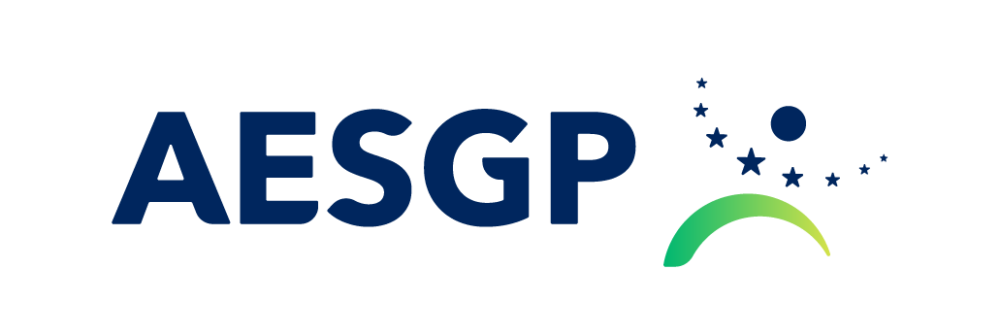AESGP committees
AESGP primarily operates via 9 technical committees. These committees are composed of AESGP members’ representatives; they meet regularly and develop AESGP positions in key areas.
Regulatory Affairs Committee
- Leads the AESGP position and actions aiming to ensure that the pharmaceutical legislation and its implementation are proportionate to the specificities of non-prescription medicines
- Leads the AESGP position on the functioning of the European marketing authorisation procedures (centralised, decentralised/mutual recognition, and national) and develop suggestions for improvement
- Fosters a positive climate for the changed of legal status from prescription to non-prescription (so-called “switch”) and promotes best practices as model for more European harmonisation
- Makes sure that product information on non-prescription medicines is fit for purpose
- Provides high quality comments on draft guidance documents produced by authorities. The AESGP pools of experts on respectively Quality/Good Manufacturing Practices (GMP), Telematics, and Environment are particularly qualified to provide assistance on those specific topics. Experts in these groups are nominated by Regulatory Affairs Committee members.
- Fosters and coordinates the relationship with other stakeholders in healthcare
Herbal Medicinal Products Committee
- Leads the AESGP position and actions directed towards a proper functioning of the legal and regulatory system for herbal and homeopathic medicines in Europe
- Supports the establishment of adequate herbal monographs and entries to the European Union ‘list of herbal substances, preparations and combinations thereof for use in traditional herbal medicinal products’
- Avoids negative repercussions for herbal medicines through inappropriate regulatory measures in relation to quality and safety requirements
- Ensures good interaction between AESGP and all relevant stakeholders interested in herbal and homeopathic medicines
Medical Devices Committee
- Ensures that the category of self-care medical devices is recognised by all stakeholders
- Represents AESGP in various European Commission’s working groups which facilitate implementation of Medical devices Regulation
- Provides information on the category of self-care medical devices notably in relation to the extent of products concerned, the classification rules currently applying and, as far as possible, the market sale/data of this category
Pharmacovigilance Committee
- Ensures that particularities of well-established actives are taken into account in any discussion related to the safety of medicines
- Contributes to well-functioning EU pharmacovigilance system
- Provides relevant and high-quality contributions to circulated draft guidance documents in relation to pharmacovigilance
Economic/Public Relations Committee
- Fosters the relationship with stakeholders in the healthcare sector
- Leads debate on studies around the economic and public health value of self-care
- Leads the position of AESGP on key market access issues such as public advertising and branding of self-care products
- Leads the AESGP position with regard to “new technologies” including eHealth, big data, digital strategies
- Serves as a programme committee for the AESGP Annual Meetings and supports the organisation of these events
Food Supplements Committee
- Provides clear industry input to ensure an appropriate implementation of the legal provisions impacting food supplements, including the health/nutrition claims regulation
- Interacts with the European Food Safety Authority (EFSA)
- Prevents negative developments for food supplements, e.g. through inadequate restrictions of food additives or limits on contaminants
- Supports national activities to improve the recognition of food supplements, as appropriate
- Keeps the most comprehensive database of the sector up-to-date
Environmental and Sustainability Committee
- Aims to provide guidance on European environmental and sustainability policies affecting self-care products.
- Is responsible for, among others, interpreting regulations, identifying issues, and developing sector-specific positions. Key topics discussed include pharmaceutical legislation, water directives, waste management, and sustainable food systems.
- Is composed by environmental and sustainability experts from member companies and associations.
Legal Committee
- Is tasked to provide guidance and support to the activities of the association.
- Key topics include: interpreting and analyzing European laws and regulations relevant to the sector with regard to e.g. consumer health products pre or post marketing rules, environment/chemical law impacting production, digital market law, consumer protection law, association governance (antitrust, data protection) following the request by the respective lead committee(s), Board or AESGP secretariat.
- Is further responsible in identifying potential legal issues that may impact the association or its members.
Ingredient Challenge Committee
- Seeks to support our members with the task of retaining safe ingredients in self-care products
- Determines the need to establish ingredient-specific consortia, following internal procedures, relying on methodologies based on objective criteria
- Is responsible for leading all monitoring and dissemination of developments relevant to Ingredient Challenges
